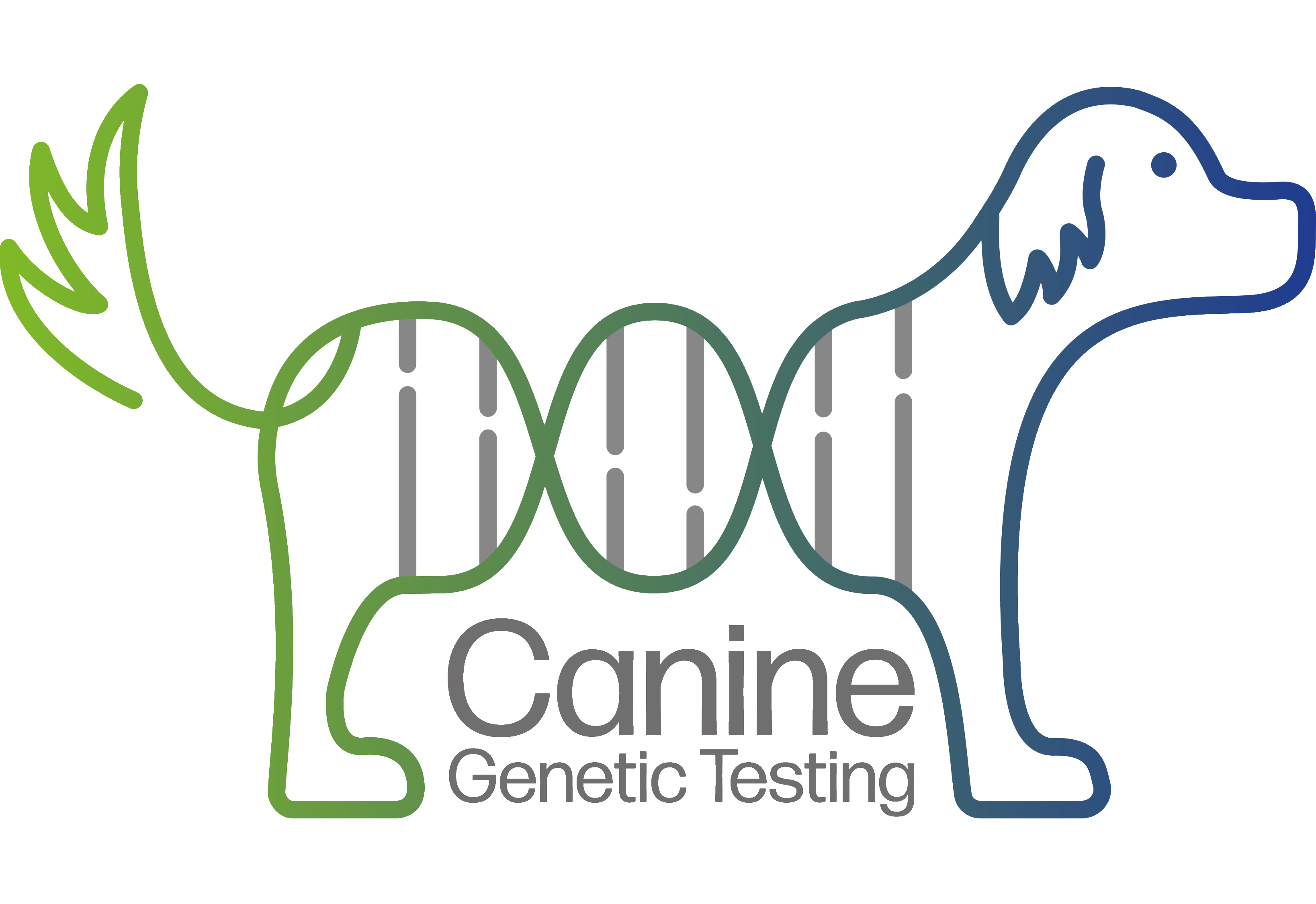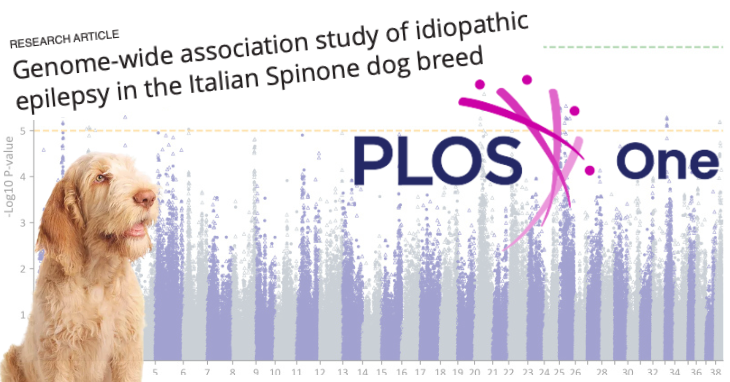
First genetic investigation of idiopathic epilepsy in the Italian Spinone published
We have recently published our preliminary genetic investigation of idiopathic epilepsy in the Italian Spinone breed in the peer-reviewed, open access journal, PLOS One. Jenkins[…]
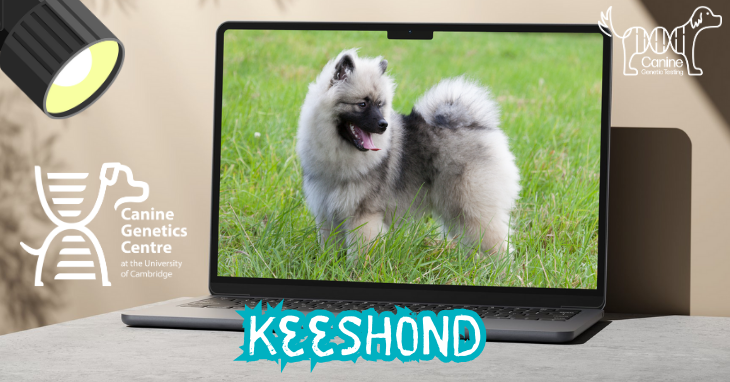
Spotlight on the Keeshond
At the beginning of March 2025 the Canine Genetics Centre launched a genetic test for primary hyperparathyroidism (PHPT) in Keeshonds. The research underpinning the new[…]
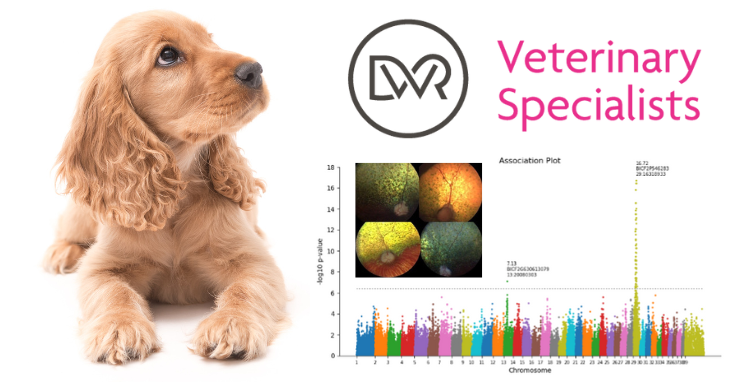
Paper detailing Retinopathy with vitamin E deficiency (RVED) in English Cocker Spaniels has been published
In collaboration with James Oliver, head of ophthalmology at Dick White Referrals, we have been researching retinopathy with vitamin E deficiency (RVED) in the English[…]
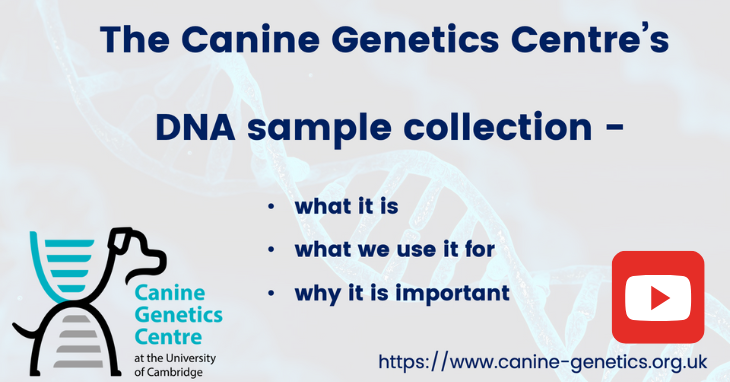
Presentation about the CGC Biobank – What? Uses? Why?
The CGC’s DNA sample collection is unique. Developed over the last quarter of a century, and comprising DNA samples from over 42,000 different dogs, it[…]
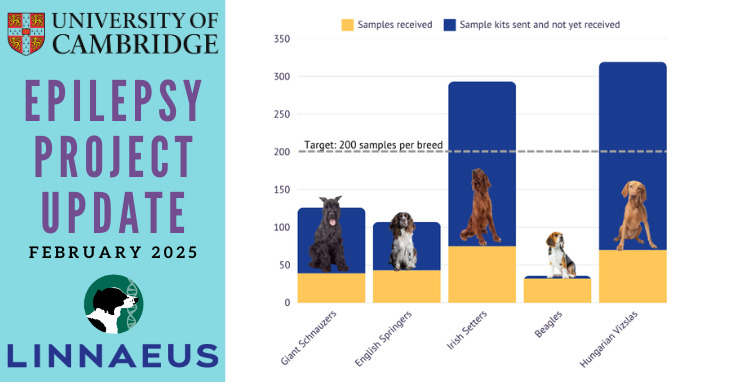
High five to our five epilepsy breeds – but we’re not done yet!
The CGC Idiopathic Epilepsy (IE) project is progressing well. We are still collecting samples from affected dogs of any age and unaffected dogs aged 8[…]
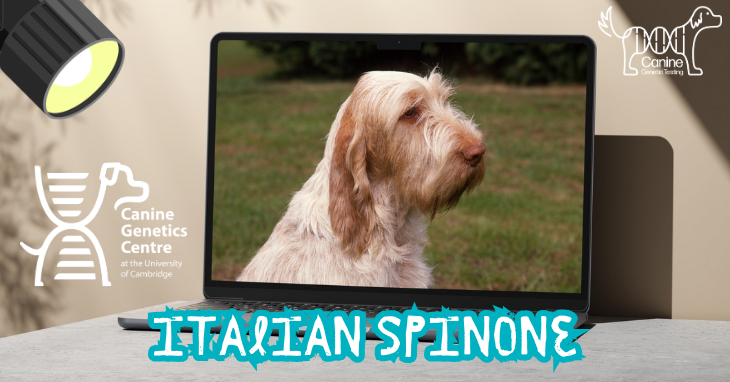
Spotlight on the Italian Spinone
This is the second in our series of ‘Spotlight’ articles where we focus on a breed that the Canine Genetics Centre (CGC) has worked closely[…]

Crufts 2025: The world’s greatest dog show
Members of the Canine Genetics Centre team have attended Crufts, the World’s greatest dog show, for as long as any of us can remember. Crufts[…]
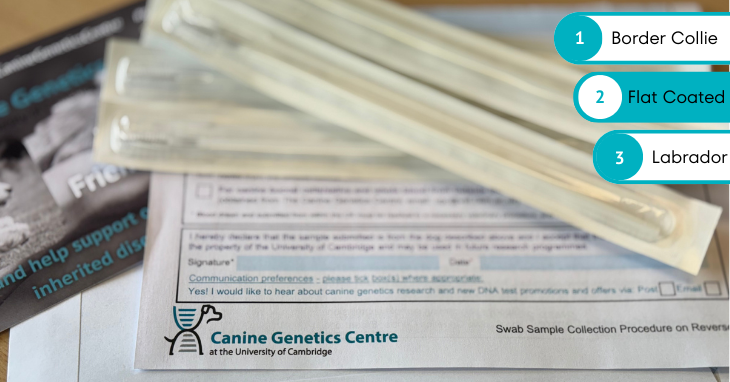
The Canine Genetics Centre’s unique DNA sample collection
Unique is a word that is often overused. But when it comes to discussing the Canine Genetics Centre’s collection of DNA samples, which dates back[…]
Multiocular Defect in the Cocker Spaniel – The Next Challenge
The Cocker Spaniel is one of the most popular dog breeds in the UK and so it is unsurprising that a number of inherited diseases[…]
How does the Canine Genetics Centre choose which diseases to investigate?
A question that members of the Canine Genetics Centre (CGC) are sometimes asked is how we decide which diseases to investigate. The answer depends on[…]

